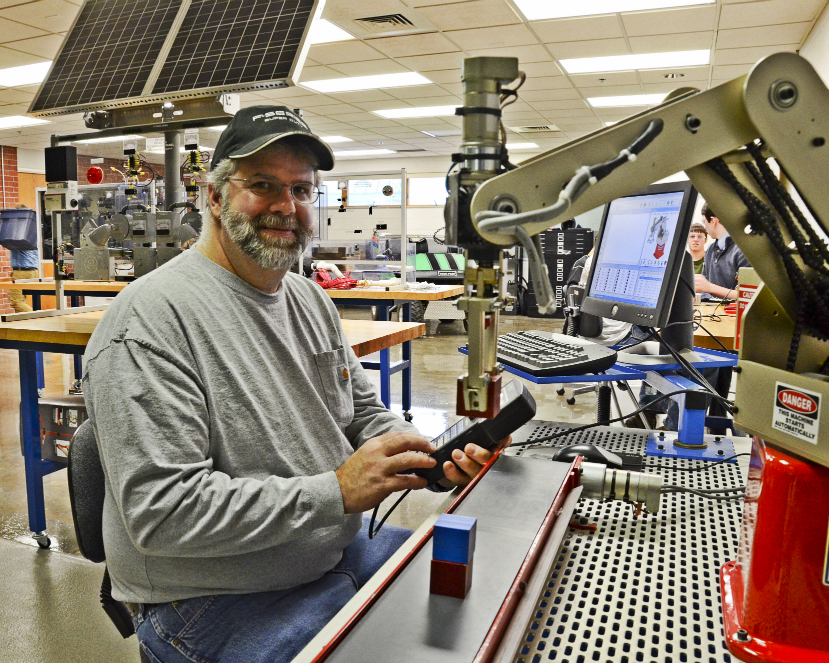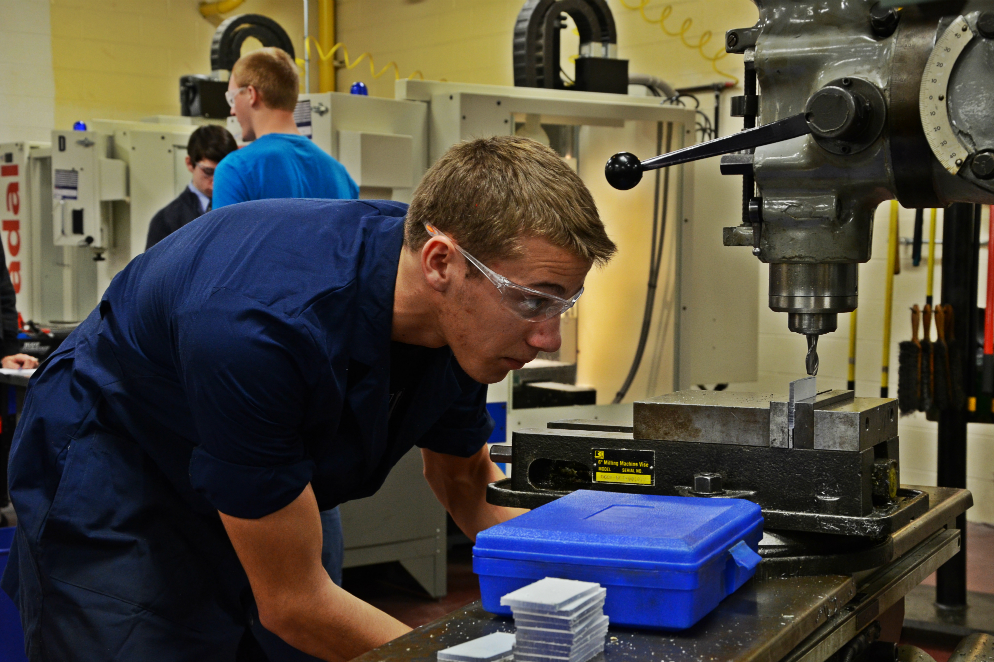West Shore Community College Catalog 2017-2018 [ARCHIVED CATALOG]
Manufacturing Technologies
|
|
 Return to: Academic Departments Return to: Academic Departments
 |
|
Manufacturing is one of the state’s key industry clusters. It is the fastest growing industry sector in Michigan, gaining 81,000 jobs since 2010. This is an increase of 17% ‐ nearly 13% higher than manufacturing jobs nationwide. As technology and manufacturing processes become more complex, more and more training is demanded to continue to train not only current workers but also the next generation. |
Electrical‐Electronic Systems
Building a body of knowledge and understanding of these topical areas provide the ability to work with electrical applications involving transformers, ACDC motors, electrical-electronic controllers, sequencers and sensors. Foundational skills include understanding and application of the National Electrical Code, electrical wiring techniques, wiring system installation, raceways, and conduit bending. Electrical‐Electronic Systems is an Open Entry/Open Exit program, allowing open enrollment in most courses any time during the year.
Potential careres in electrical-electronic systems include:
Machining
The ability to operate computer numerically controlled (CNC) machinery efficiently, while producing quality parts, is a skill in demand in today’s manufacturing environments. WSCC’s program concentrates on developing students’ knowledge and skills in four ways: 1) measure dimensions accurately with high‐precision devices, 2) read and understand blueprints and technical drawings, 3) understand concepts of design, and 4) operate saws, drills, grinders, manual mills and lathes, and program and operate CNC mills and lathes to produce precision parts.
Potential careers in machining include:
- Computer numerically controlled machine tool programmers, metal and plastic
- Computer controlled machine tool operators, metal and plastic
- Cutting, punching, and press machine setters, operators, and tenders, metal and plastic
- Lathe and turning machine tool setters, operators, and tenders, metal and plastic
Mechanical Systems
Mechanical equipment maintenance technician careers offer some of the highest paying and most satisfying opportunities available as companies increase their use of newer and more complex machinery. WSCC’s program includes training in mechanical drives, pumps, pneumatics, hydraulics, electricity‐electronics, welding, and piping. To perform well, technicians must have higher skill levels in a wider range of technologies than ever before.
Potential careers in mechanical systems include:

Mechatronics
Mechatronics workers need to know automation components as well as understand how these components integrate into a system. Manufacturing industries are increasing their use of ever more sophisticated automation systems, often involving higher speeds, greater precision, and seamless integration of IT networks. Students in Mechatronics at WSCC gain skills and knowledge of precision measurement, electricity, electronics, robotics, mechanics, fluid power principles, and troubleshooting.
Potential careers in mechatronics include:
Welding
Welders use a variety of equipment to apply intense heat to metal for the purpose of joining them together or for cutting or trimming them to desired sizes or shapes. Manual welding is done under the complete control of the welder. Semiautomatic welding is done using equipment such as an electrode‐feeding gun, which requires some control and manipulation by the welder. Automatic welding is done by a machine, which performs most of the welding functions under the attention of a welding operator.
Potential careers in welding include:
ProgramsOccupational Programs
 Return to: Academic Departments Return to: Academic Departments
|